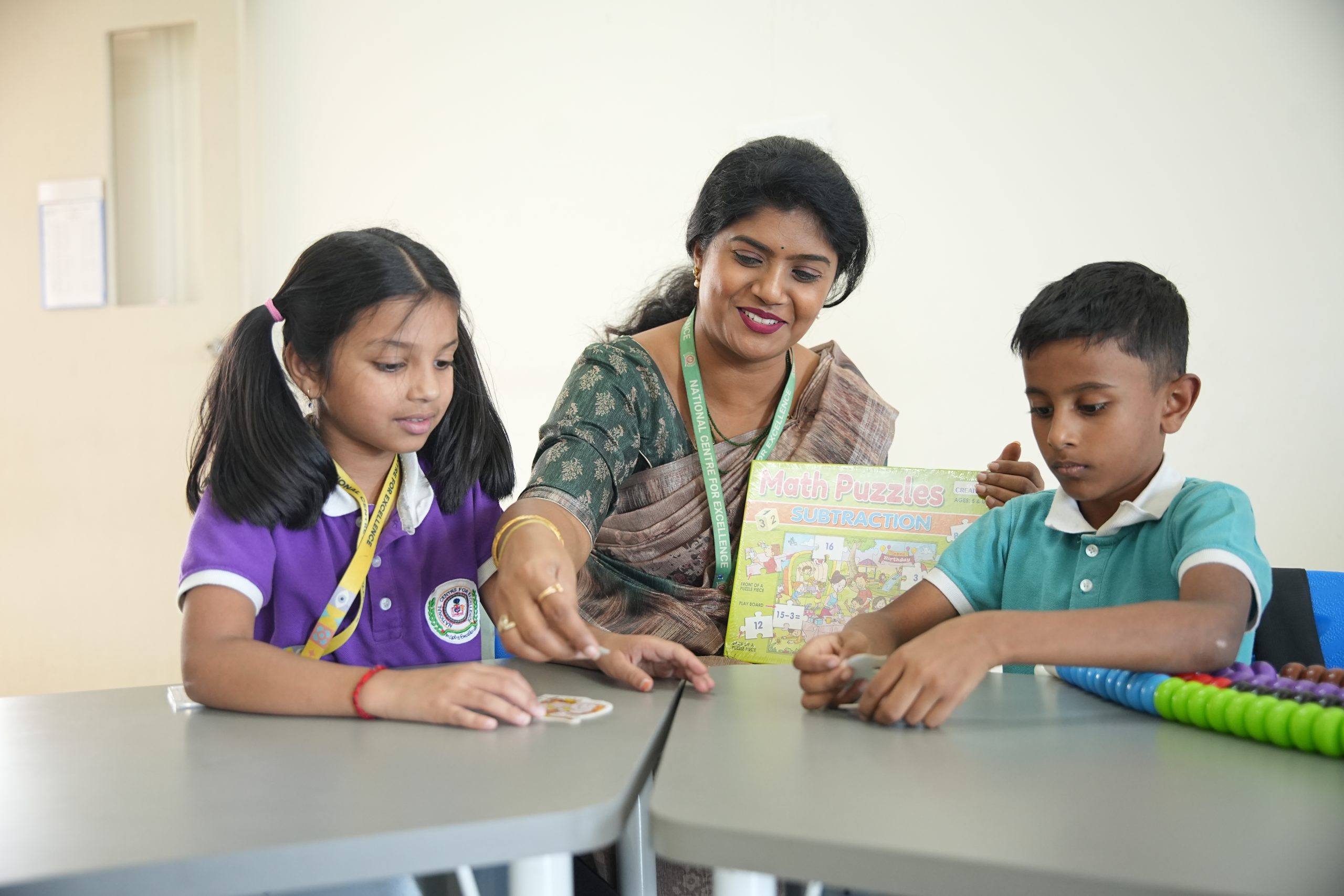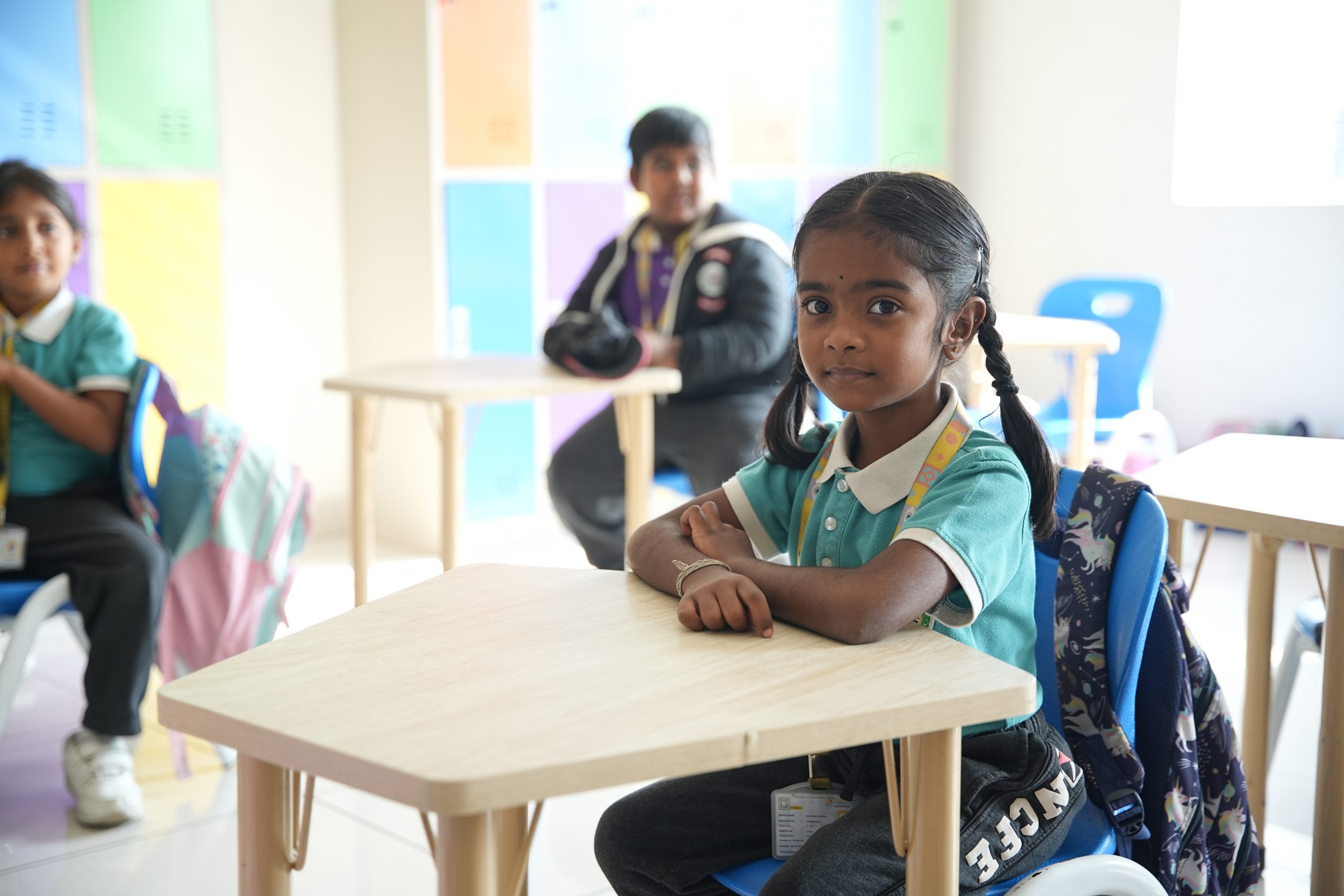At National Centre for Excellence Mandur (NCFE Mandur), we believe critical thinking is one of the most essential skills a child can develop. In today’s rapidly changing world, students must engage with information actively, analyze it, and apply it meaningfully. Our approach to critical thinking is not just about challenging students with complex problems; it’s about creating an environment where classrooms encourage inquiry, debate, and reflection.
This goal shapes the daily experiences of our students. Here’s how NCFE Mandur integrates critical thinking into its curriculum.
Our Classrooms Aren’t Lecture Halls — They’re Workshops for Thought
At National Centre for Excellence Mandur, we’ve reimagined the traditional classroom. We don’t just deliver lectures. Instead, we view classrooms as interactive workshops. In these workshops, students engage with the subject matter, not just absorb it.
At NCFE, students step into dynamic classrooms where they are encouraged to discuss, ask questions, and share opinions. The teacher’s role is to facilitate exploration, guiding students as they actively construct their understanding. In a typical lesson, students might solve problems together, present ideas to the class, and engage in debates. Every lesson fosters critical thinking, helping students build analytical skills and become independent learners.

Encouraging Questions, Not Just Answers at National Centre for Excellence Mandur
At NCFE Mandur, we believe that the questions students ask are just as important as the answers they give. This philosophy empowers students to explore different aspects of a problem, seeking deeper understanding instead of accepting surface-level answers.
For example, in history class, students don’t just memorize dates. Instead, they ask questions like, “What caused this event?” “What were the alternatives?” or “How might things have turned out differently?” These questions push students to explore the subject more deeply and develop a nuanced understanding.
Our teachers guide this process, encouraging students to ask questions and dig deeper. By focusing on inquiry-based learning, NCFE helps students sharpen their critical thinking abilities.
Applying Knowledge to Real-World Situations
We don’t limit learning to textbooks. At National Centre for Excellence Mandur, students learn to apply what they study to real-world situations. We believe education should be meaningful and relevant.
Our curriculum emphasizes project-based learning and problem-solving exercises. For instance, in science, students might design a water filtration system for a rural village or find ways to reduce plastic waste in the community. These hands-on projects encourage students to use their knowledge to solve real-world challenges, fostering critical thinking, creativity, and problem-solving skills.
Students are also taught to apply critical thinking to personal development. Whether making decisions about time management or solving interpersonal conflicts, NCFE Mandur teaches students to think thoughtfully in all areas of their lives.
Cultivating a Growth Mindset at National Centre for Excellence Mandur
Critical thinking goes hand in hand with a growth mindset. At NCFE, we believe intelligence isn’t fixed—it grows through effort, practice, and perseverance. We encourage students to view challenges as opportunities for growth, not obstacles to avoid.
When students face challenges, we don’t allow them to feel discouraged by failure. Instead, we guide them to reflect on their mistakes, learn from them, and try again. This process builds resilience and adaptability, both essential components of critical thinking. Whether it’s solving a difficult math problem, analyzing a complex literary text, or working on a science experiment, students learn that critical thinking requires reflection and constant improvement.
Our teachers model this growth mindset, showing students how they, too, face challenges, learn from mistakes, and continue to improve. This approach ensures students don’t fear failure but see it as a step toward success.

Building Independent and Collaborative Thinkers
Critical thinking isn’t just an individual endeavor—it’s also a collaborative one. At NCFE Mandur, we encourage students to work in teams to solve problems and generate ideas. Collaborative learning allows students to see different perspectives, broadening their understanding of issues and teaching them how to think critically in diverse situations.
Through group discussions, debates, and peer-led activities, students learn to listen actively, consider others’ viewpoints, and present well-reasoned arguments. They’re encouraged to challenge each other’s ideas and offer constructive feedback. This process teaches students to communicate their thoughts effectively, disagree respectfully, and collaborate—skills that are essential for critical thinkers.
Using Technology as a Tool, Not a Crutch
While NCFE Mandur embraces technology, we use it to enhance learning, not replace hands-on experiences. Technology serves as a tool, not the centerpiece of our critical thinking approach.
We integrate digital tools like interactive whiteboards and online research into lessons. However, these tools are always paired with face-to-face interactions. For example, students might use a tablet to research a historical event, but the class discussion and analysis of that event happen in person. This approach ensures students engage critically with the material and avoid over-reliance on screens.
By balancing technology with traditional learning, we ensure that students develop both digital and critical thinking skills.

Fostering a Community of Lifelong Learners at National Centre for Excellence Mandur
At NCFE Mandur, we view critical thinking as a lifelong pursuit. We don’t just want students to think critically while they’re in school; we want them to carry these skills with them throughout their lives. We promote a culture of curiosity, intellectual humility, and continuous learning, ensuring that students become lifelong learners.
Our teachers lead by example, demonstrating the value of critical thinking in their professional lives. By encouraging students to ask questions, seek answers, and never stop learning, we help them develop a passion for discovery.
Conclusion
At National Centre for Excellence Mandur, critical thinking is more than just a skill. It’s an integral part of our philosophy. We use inquiry-based learning, real-world applications, and a growth mindset to build students who can think critically, creatively, and independently. This foundation will empower them to thrive in the ever-changing world around them.
If you’re looking for a school that encourages deep reflection, independent thought, and thoughtful problem-solving, NCFE Mandur is the place for your child. Here, we foster a community of critical thinkers who are prepared to face the future with confidence.


